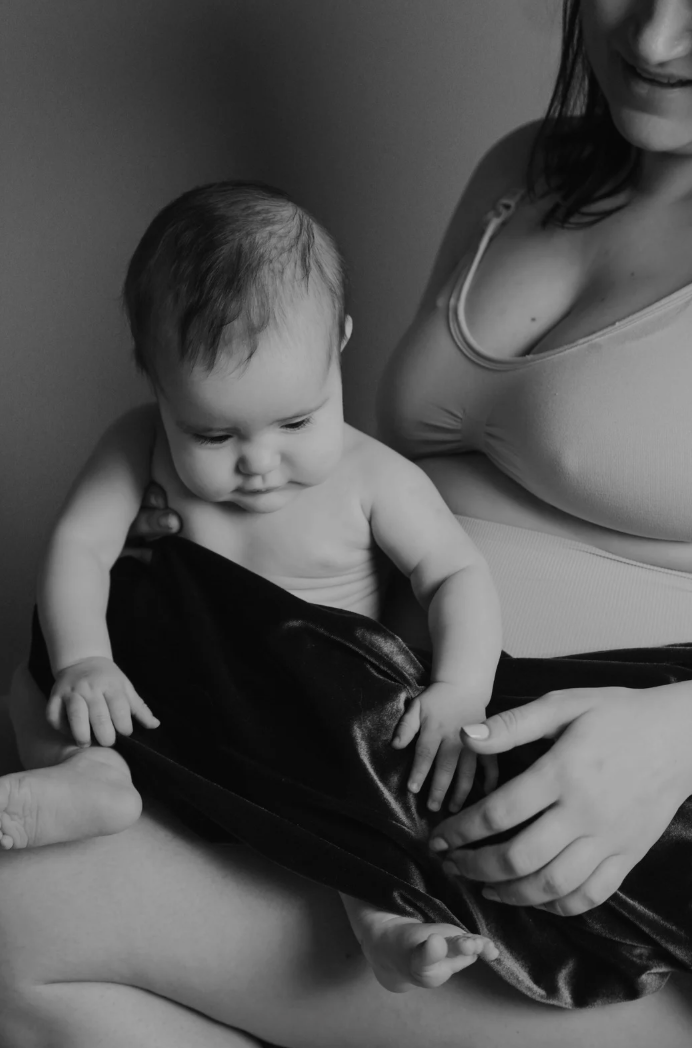Carole Falletta, MS, MA, PMHNP-BC, FNP-BC, RNC-EFM, IBCLC, LCCE Carole is a nurse practitioner with over 30 years of experience in nursing, specializing in women's health, newborn care, and reproductive and postpartum mental health. Actively practicing in healthcare, she supports women and families during the perinatal journey through compassionate, evidence-based care. A dual board-certified nurse practitioner in psychiatric and family health, Carole is also an International Board-Certified Lactation Consultant (IBCLC) and Lamaze Certified Childbirth Educator, combining her clinical expertise and passion for education to empower mothers and babies.
Bringing a baby into the world is supposed to be a time filled with joy, love, and connection. But for some new mothers, health challenges—either their own or their baby’s—can lead to the heartbreak of being separated from their newborn. It’s a situation no parent expects or prepares for, and the emotional toll can feel overwhelming.
If you’re navigating this difficult time, know that your feelings are valid, your struggles are real, and you are not alone. Prioritizing your mental health during this separation is essential, both for your well-being and for the eventual reunion with your little one. Here’s how to cope with this challenging experience while caring for your emotional and mental health.
Personal History Matters
Your mental health history can play a big role in your risk for postpartum depression (PPD). If you’ve had depression, anxiety, or other mood disorders before or during pregnancy, your chances of developing PPD are higher. Mothers who experienced postpartum depression after a previous pregnancy are also more likely to go through it again. Even if you’ve never experienced depression yourself, a family history of mental health issues like depression or bipolar disorder can increase your risk. And if you’ve endured trauma, such as physical, emotional, or sexual abuse, you may be more vulnerable.
Pregnancy and Delivery Challenges
Sometimes, the circumstances of pregnancy and childbirth can heighten the risk for postpartum depression. Complications during pregnancy, such as preeclampsia, gestational diabetes, or bed rest, can create stress and anxiety. Similarly, a traumatic birth experience or emergencies during labor, like an unplanned cesarean section, can leave mothers feeling overwhelmed or disconnected. If your baby arrives early and requires NICU care, or if there are health concerns for your newborn, the emotional toll can be significant. It’s natural to feel anxious or sad during these moments, and being separated from your baby can make it even harder.
Environmental and Social Stressors
Your environment and support system play a big role in your mental health as a new mom. A lack of emotional or practical support from your partner, family, or friends can leave you feeling isolated. Relationship challenges or financial stress can add to the pressure, making it harder to cope. Life events such as moving, job loss, or the loss of a loved one during or after pregnancy can also amplify stress. And let’s not forget the influence of societal or cultural expectations—social media and well-meaning advice from others can sometimes make moms feel like they’re falling short.
Physical and Medical Factors
Motherhood comes with its fair share of physical challenges. Difficulties with breastfeeding, such as pain, low milk supply, or latching issues, can lead to feelings of frustration or inadequacy. Chronic health conditions, thyroid imbalances, or physical exhaustion from sleepless nights can also impact your emotional well-being. Moms of multiples, like twins or triplets, face unique challenges, as the demands of caring for more than one baby can be physically and emotionally overwhelming.
Emotional Traits and Personality
Some moms are more vulnerable to postpartum depression due to personality traits or emotional tendencies. Perfectionism, for example, can make the transition to motherhood feel particularly difficult. If you’re someone who holds yourself to high standards, you may struggle with feelings of failure when reality doesn’t match your expectations. Similarly, low self-esteem or a heightened sensitivity to stress can make it harder to adjust to the challenges of parenthood.
Other Risk Factors
Certain situations can increase the likelihood of PPD, such as an unplanned or unwanted pregnancy. Struggling with substance use or addiction can also worsen or contribute to depressive symptoms. Additionally, limited access to postpartum healthcare and mental health resources can delay the recognition and treatment of PPD, making it harder to cope.
How to Protect Your Mental Health
The good news is that understanding these risk factors empowers you to take proactive steps. Here’s what you can do:
Talk to Your Provider: Share any concerns about your mental health with your doctor, midwife, or therapist during pregnancy or postpartum check-ups. They can help you identify early signs of PPD and provide support.
Build a Support System: Surround yourself with people who can help, whether it’s your partner, family, or a local mom group. Don’t hesitate to lean on them for emotional or practical support.
Consider Therapy or Counseling: If you’re at higher risk due to personal history, pregnancy challenges, or other factors, talking to a therapist during or after pregnancy can provide valuable tools to manage your mental health.
Monitor Your Symptoms: Pay attention to how you’re feeling. If sadness, anxiety, or irritability start to interfere with your daily life, reach out for help sooner rather than later.
Remember, You’re Not Alone
Postpartum depression is common, and many mothers experience it. The most important thing to know is that it’s not your fault, and help is available. By recognizing your risk factors, being proactive about your mental health, and seeking support when you need it, you can navigate this challenging time with resilience and strength.
You’re not alone in this journey. There’s a community of healthcare providers, friends, and fellow moms ready to support you every step of the way. Take it one day at a time!

Carole Falletta, MS, MA, PMHNP-BC, FNP-BC, RNC-EFM, IBCLC, LCCE Carole is a nurse practitioner with over 30 years of experience in nursing, specializing in women's health, newborn care, and reproductive and postpartum mental health. Actively practicing in healthcare, she supports women and families during the perinatal journey through compassionate, evidence-based care. A dual board-certified nurse practitioner in psychiatric and family health, Carole is also an International Board-Certified Lactation Consultant (IBCLC) and Lamaze Certified Childbirth Educator, combining her clinical expertise and passion for education to empower mothers and babies.
- Latest Posts by Carole Falletta
-
Breastfeeding Twins: Essential Tips for New Moms
- -
Safe Postpartum Weight Loss: When to Use Medications
- -
Understanding Water Breaking and Dilation
- All Posts




